Chromatic Permutations
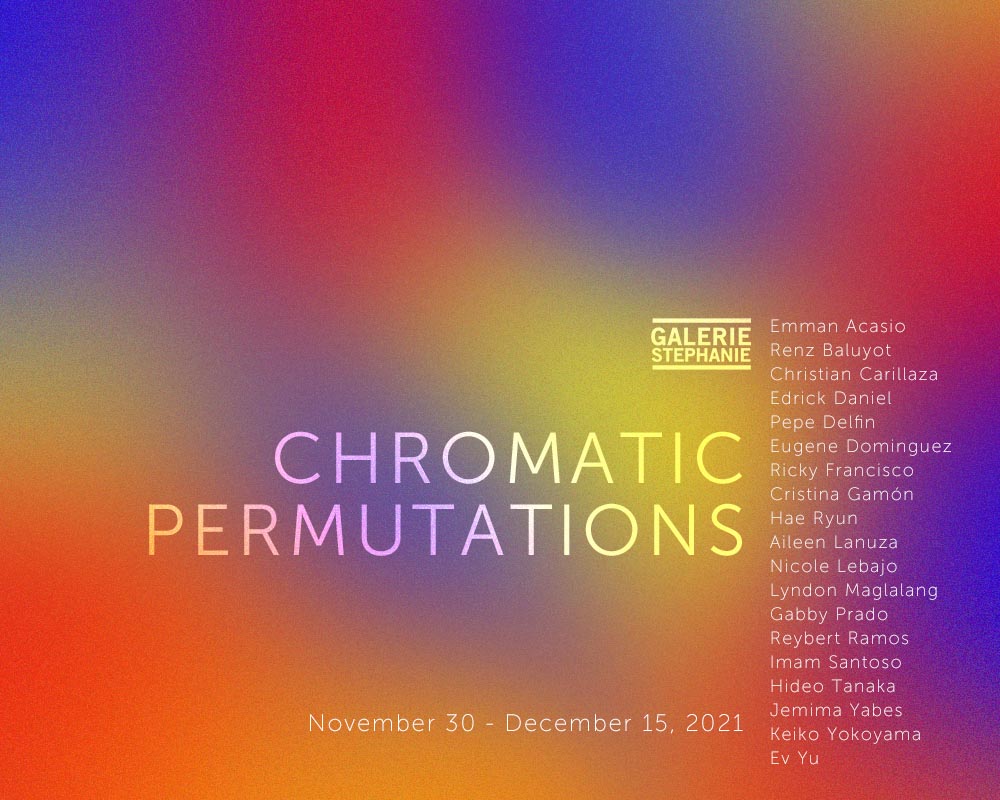
November 30 – December 15, 2021
Galerie Stephanie
Unit 4021 East Wing, Shangri-La Plaza Mall, EDSA cor. Shaw Boulevard, 1552 Mandaluyong, Philippines
Color is considered the most fundamental, and yet, the most relative element in art. There are hardly identical visual perceptions of color— a single hue may evoke countless readings. Seeing color is strongly anchored on the recognition of the in-betweens of palettes; as well as the placing of the subjects. As creative beings, seeing things singularly is not considered seeing at all.
To visually expound, Galerie Stephanie has gathered artists as an experimental survey. Providing the universally accepted primary colors as their prompts, Chromatic Permutations presents works that give the viewer a more intimate interpretation of the popular color spectrum.
Providing the universally accepted primary colors as their prompts, this experimental survey presents works that give the viewer a more intimate interpretation of the popular color spectrum.
CHROMATIC PERMUTATIONS: RED
Typically regarded as the color of vitality, passion, and impulsion, the spectrum of red is in its full range, as seen in this collection. The eloquent interaction of the palettes not only highlights the assigned color but also gives the fluency to see the works beyond the sum of its parts.
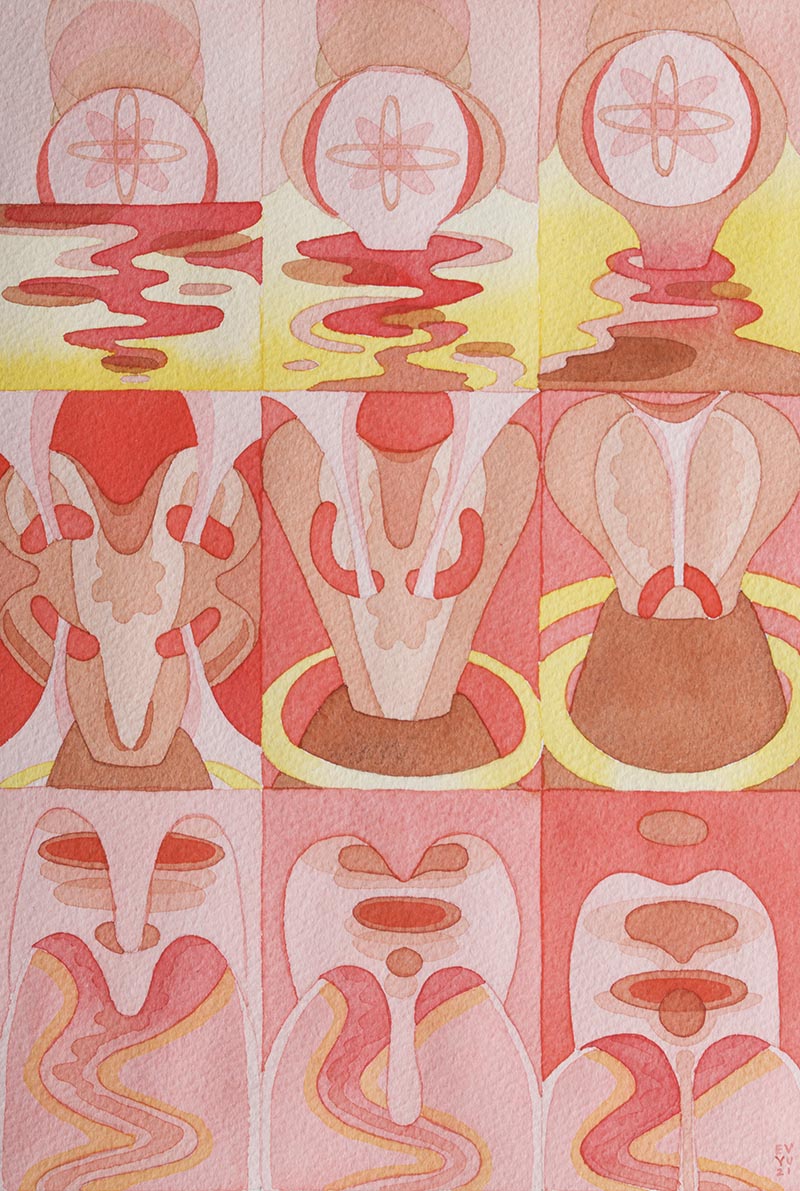
Ev Yu
9 x 12 inches
Watercolor on paper
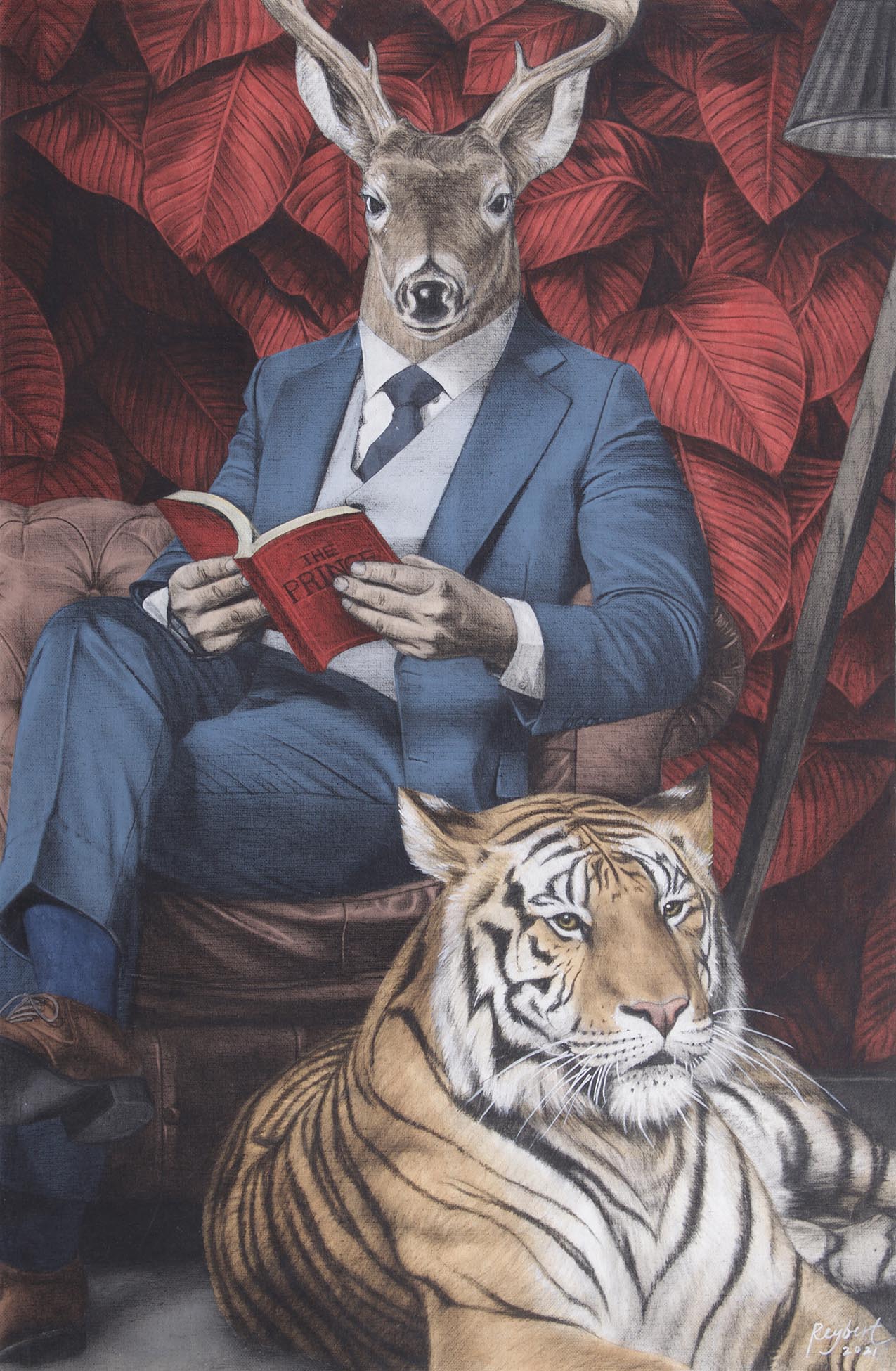
Reybert Ramos
48 x 36 inches
acrylic and graphite on canvas
CHROMATIC PERMUTATIONS: YELLOW
Yellow has always been associated with feelings of enlightenment and renewal because of its luminescence. Being the brightest color in the spectrum invigorates a certain feeling of warmth, comfort, and positivity.
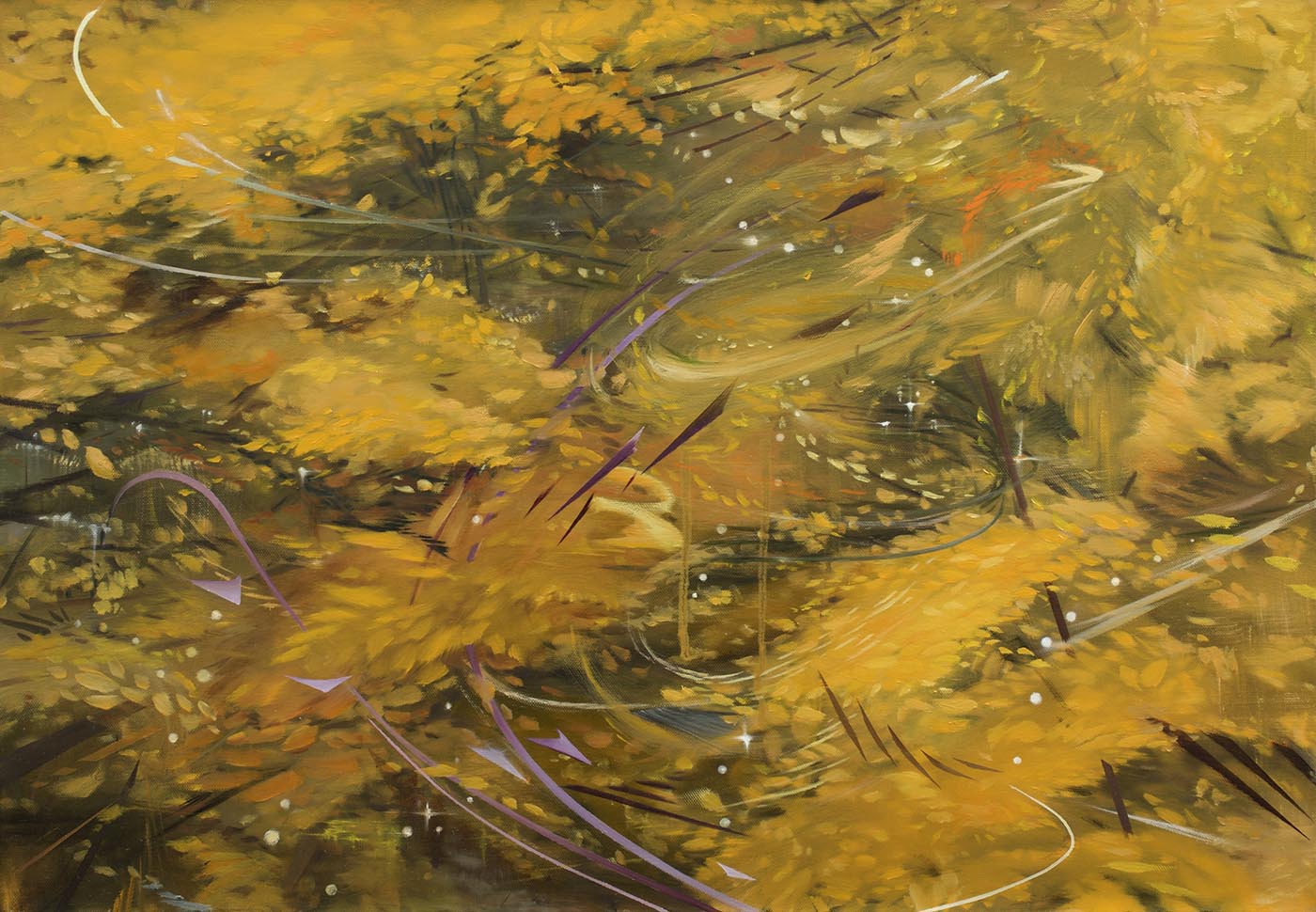
Hae Ryun
18 x 25.5 inches
Oil on canvas
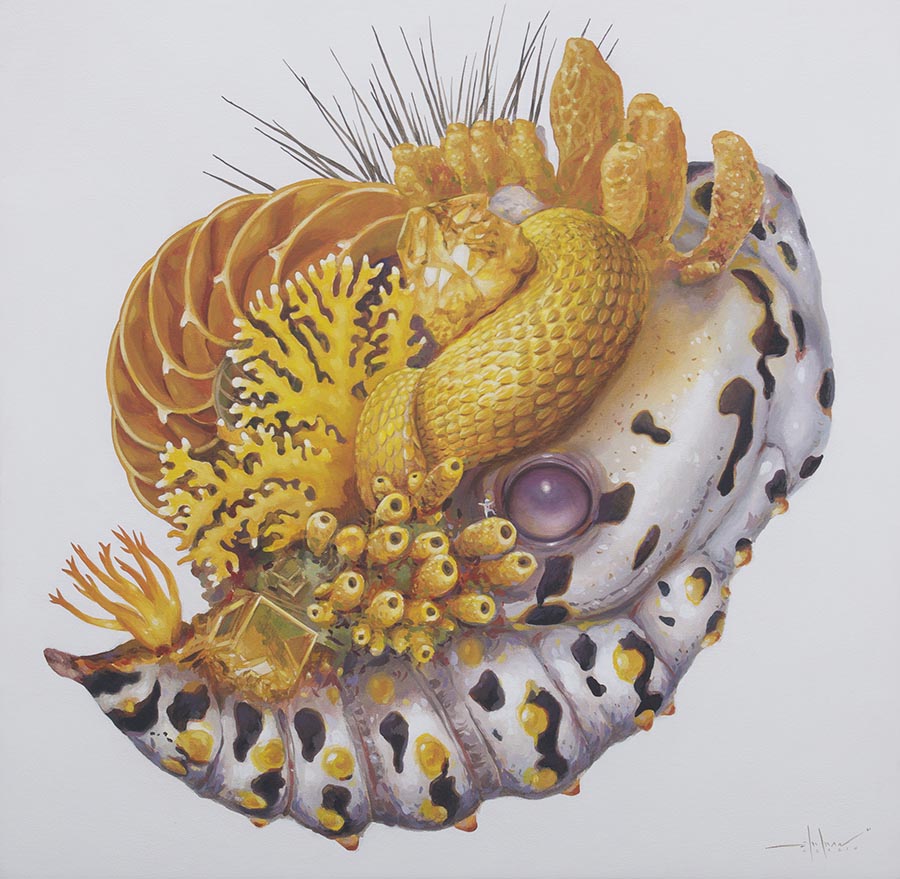
Emman Acasio
24 x 24 inches
Acrylic on canvas
CHROMATIC PERMUTATIONS: BLUE
Over the course of history, visual artists have utilized the variations of Blue, basing on the belief that the hue boosts feelings of calm and productivity. Regarded as the most popular among the colors, blue exudes a feeling of transcendence into the vast openness and a deep connection with one’s ethos.

Renz Baluyot
36 x 48 inches
oil on canvas
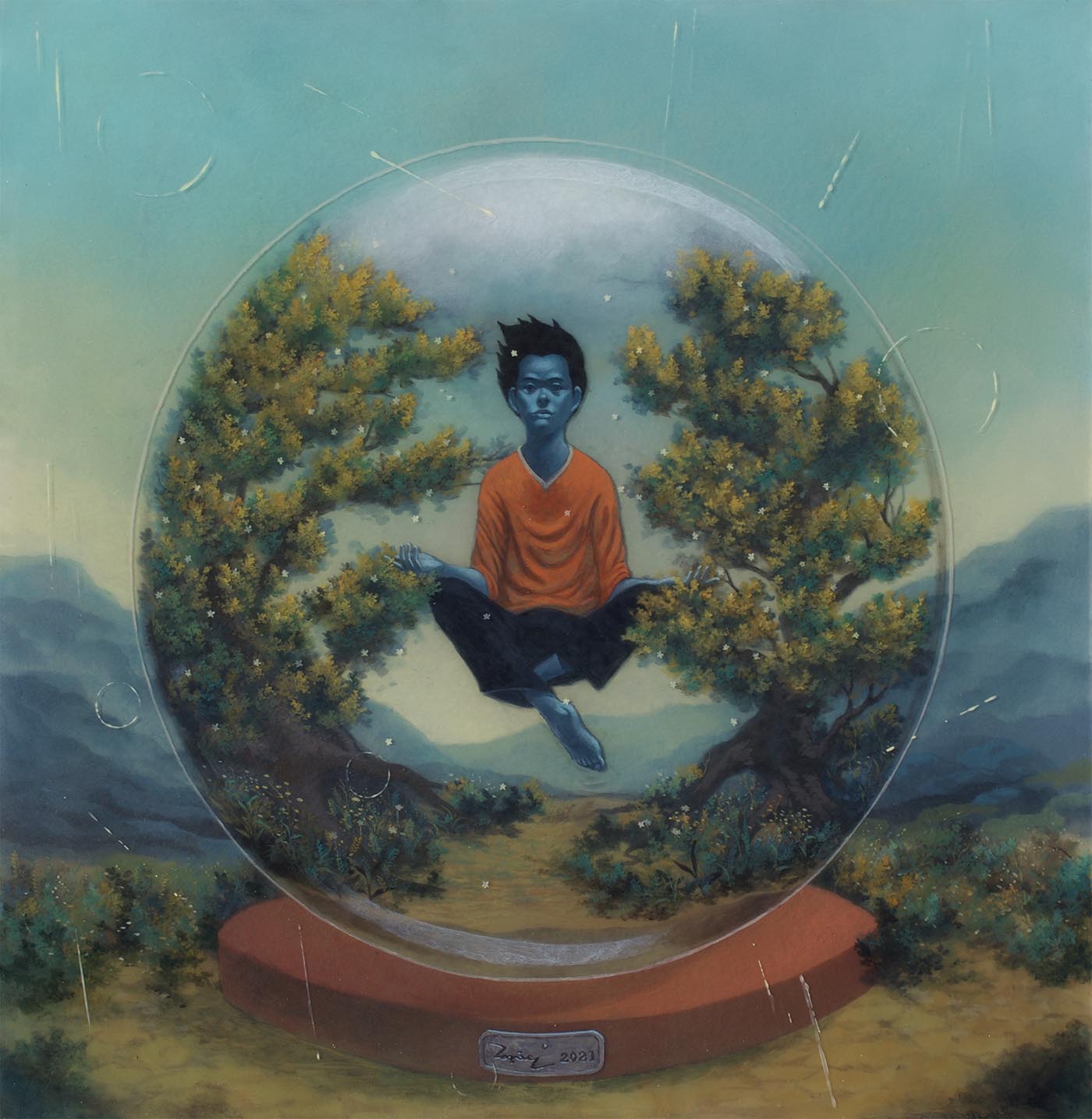
Lyndon Maglalang
48 x 36 inches
acrylic and dry paint on canvas
Chromatic Permutations, in a way, not only present colors for how they are universally perceived but give the audience an intimate glimpse of the representations that were available to the artist that they colored as experiences.
These collections of works not only presented themselves as a singular impression of an experience but likened the nuances of their narratives to the nuances of the vast color spectrum itself. That, despite not always being seen in the exact hue they are presented, are still just as pure and as personal.

